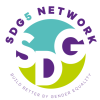The interconnected concepts of gender, disaster, and development form a critical framework for understanding the multifaceted dynamics shaping societal progress. Gender, as a complex interplay of societal expectations and norms related to femininity and masculinity, significantly shapes power relations, roles, and expectations within communities. When viewed through the lens of disaster and development, gender becomes a crucial determinant in shaping vulnerabilities, impacts, and recovery processes.
Disasters, whether natural or human-made, often exacerbate existing gender inequalities, disproportionately affecting women, men, and gender-diverse individuals. Vulnerabilities linked to social, economic, and cultural factors intersect with gender dynamics, amplifying the differential impacts experienced by diverse groups. Women, for instance, may face unique challenges in disaster-stricken areas, including increased risks of gender-based violence, limited access to reproductive healthcare, and heightened caregiving responsibilities, especially during displacement.During post-disaster recovery, women may encounter obstacles in rebuilding their lives and communities, such as difficulties accessing financial resources, housing, and education. Additionally, women’s specific needs, like maternal health and childcare, can be overlooked in relief efforts, further exacerbating existing gender disparities.
In the context of development, recognizing and addressing gender-specific concerns becomes imperative. Gender-inclusive development approaches aim to dismantle discriminatory practices, promote equal opportunities, and empower individuals of all genders. Understanding the interconnectedness of gender, disaster, and development provides a comprehensive foundation for formulating policies and interventions that ensure resilience, equality, and sustainable progress within diverse communities.The SDG5 Network advocates that true development cannot be achieved by leaving women and girls behind. By actively studying and promoting Feminist Foreign Policy and aligning with critical security perspectives, the network contributes to a more comprehensive and gender-sensitive approach to security and development. The four pillars of Feminist Foreign Policy, namely Representation, Rights, Resources, and Reality, embody the network’s commitment to fostering inclusive and equitable practices within the realms of security and development.
The SDG5 Network aims to build a national and international network dedicated to highlighting the intersections of war, disasters, and climate change in exacerbating women’s security concerns and increasing their vulnerabilities. The SDG5 Network actively aligns with the Convention on the Elimination of All Forms of Discrimination Against Women (CEDAW) General Recommendation No. 37, adopted in 2018. This recommendation provides crucial guidance on addressing gender-related dimensions in disasters and climate change. Emphasizing the rights of women and girls, it spans six key areas, including freedom from gender-based violence, education, work, health, living standards, and freedom of movement. The SDG5 Network is dedicated to implementing these principles, advocating for gender-sensitive policies, dedicated budgets, capacity-building, recognition of women’s roles, data collection, removing barriers, and promoting gender equality. This commitment reflects the network’s holistic approach to transformative change in peacebuilding, disaster reconstruction, security, and development.

